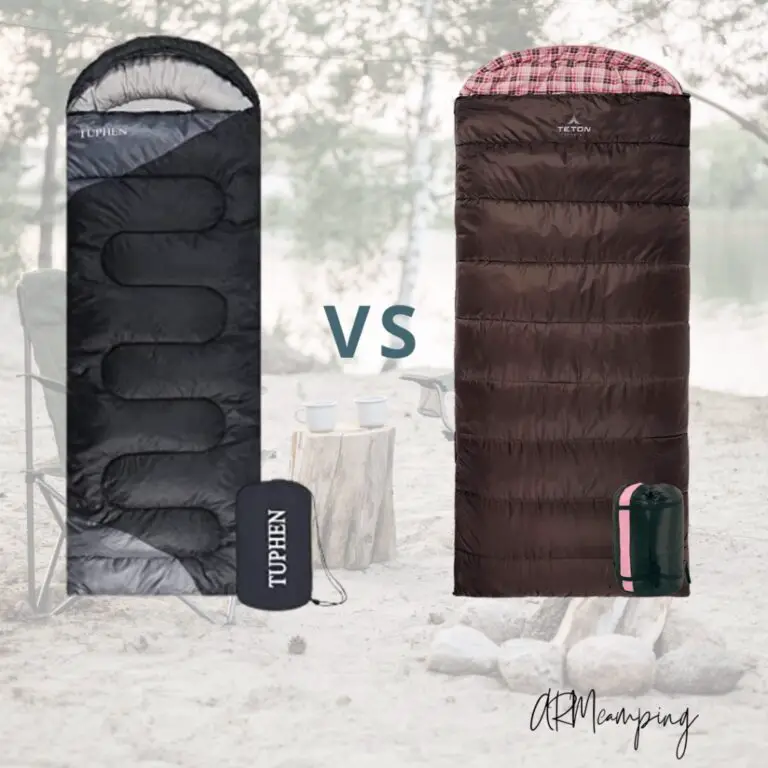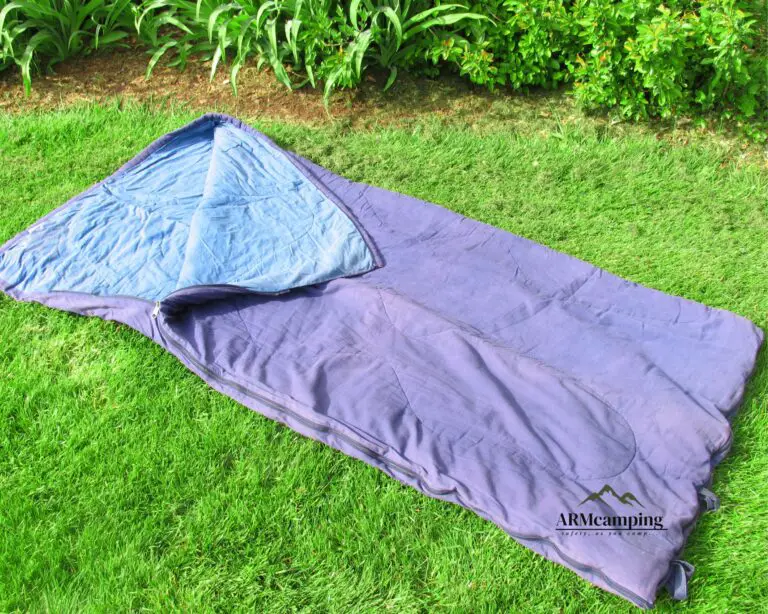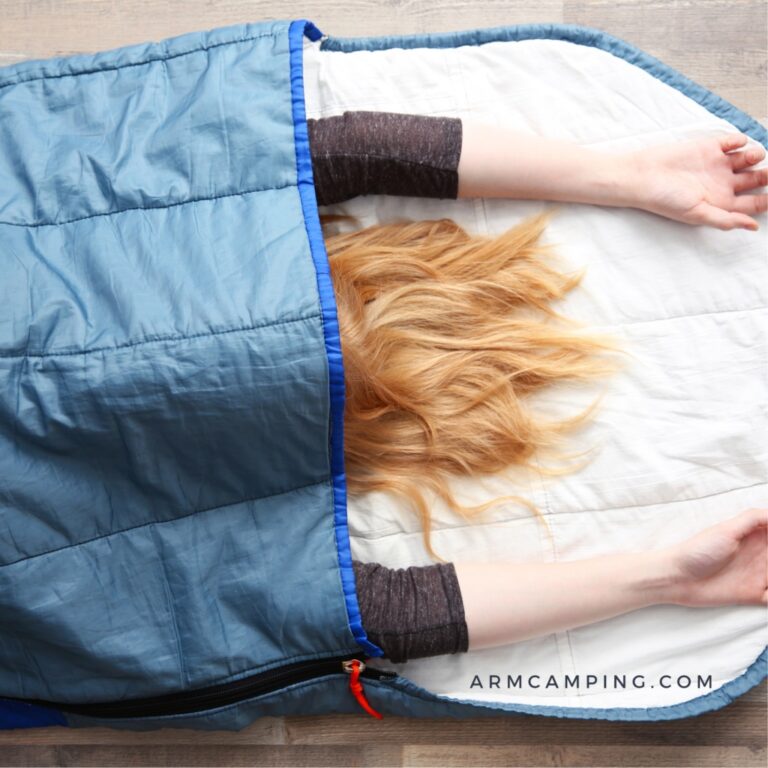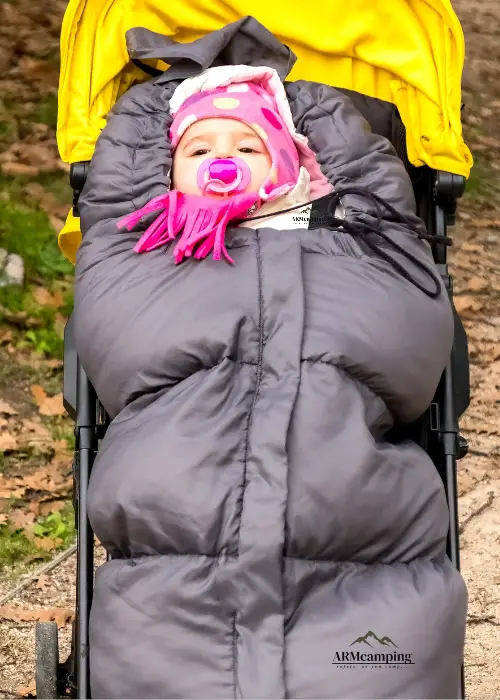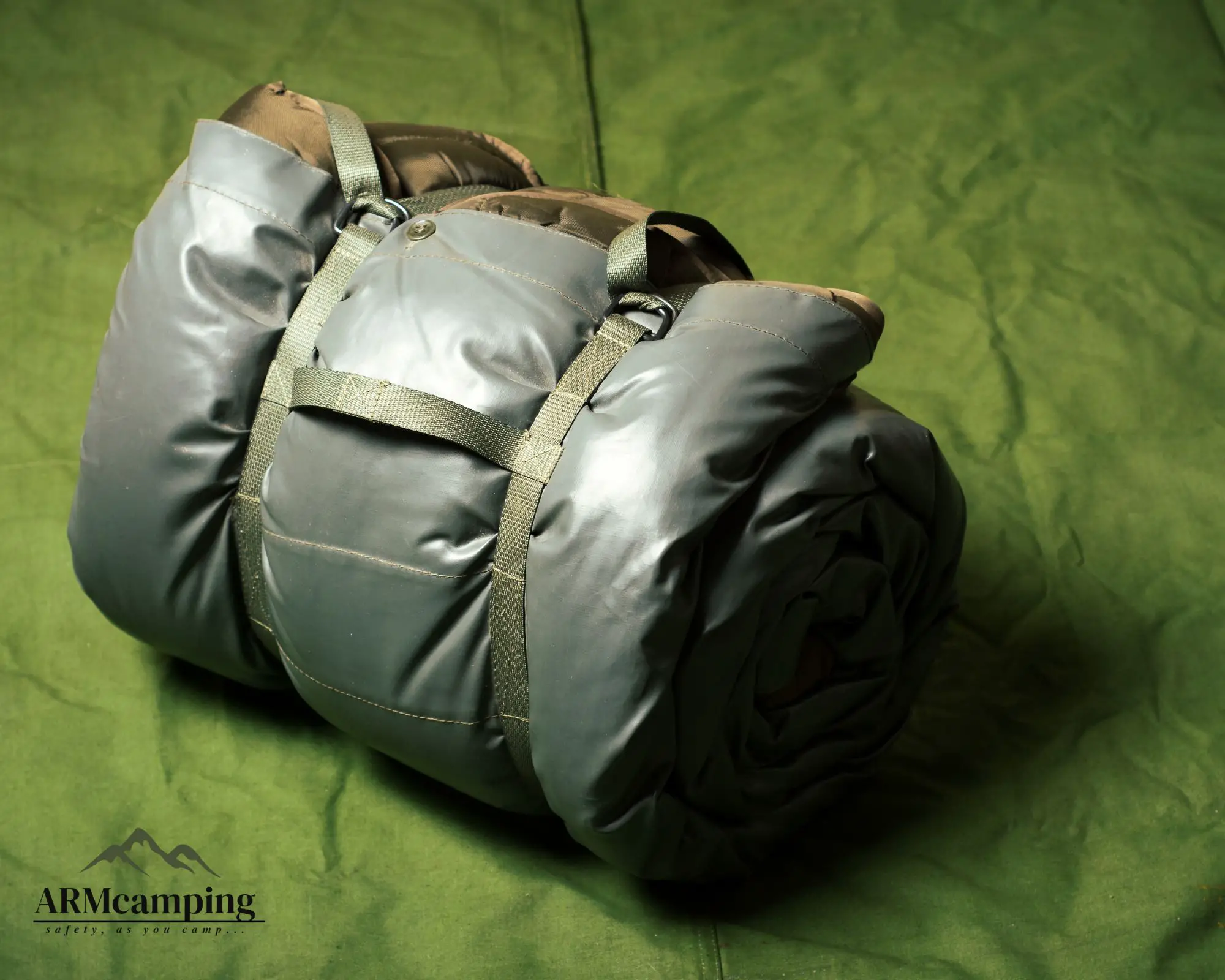
No, you should not compress a down sleeping back when storing it. There are several reasons that will be highlighted in this article. First, you may wonder what a down sleeping bag is, how it works and how to care for it. Knowing all this and more will help you appreciate why you should not store it compressed. Read on.
What Is A Down Sleeping Bag?
Table of Contents
Sleeping Bags have insulation inside them that keeps you warm and there are two different types of insulation: down and synthetic. In this article, we focus on down insulation.
Down Insulation Sleeping Bags
When making a choice of sleeping bags to buy, consider the properties of a down sleeping bag. Down is the insulating light plumage in duck and goose wings. The collection of plumes creates pockets of air that traps heat, keeping you warm inside the sleeping bag. The more down you have in your sleeping bag, the more warmth you will enjoy.
It Is Very Compressible
Down Sleeping bags are very compressible, which is why they’re preferable to synthetic bags. But this is also a drawback for down sleeping bags and why you should not compress them in storage.
Why You Should Not Store Down Sleeping Bags Compressed
Now that you understand the principle behind the manufacture of down sleeping bags, why should you not store them compressed?
It compresses the insulator
If you store your down sleeping bag compressed, it also compresses the insulator in the bag. The insulator is what traps the warm air that keeps you cozy in the bag. When it is compressed, the insulator loses this ability.
Compression damages the loft
The loft is the circulation of air in the insulation. There’s a certain amount of air going around in there that compression can cause damage to. For example, if you leave a down sleeping bag compressed all summer by the time you need it the next time, you will experience less warmth in it.
How To Store Down Sleeping Bags Without Compressing Them
If you are outdoors hiking, you may have reasons to compress your down sleeping bag for a while. But being outdoors also requires that you constantly remove and use the bag, so a little compression at a time should not cause serious worries. When the bag is not in use, follow these storage tips:
Always Keep It Dry
First, make sure your down bag is always dry. If it gets wet from rain or snow, it can damage the loft in the insulation. The best way to keep your sleeping bag dry is by hanging it out in the sun. An alternative is to use a dryer. However, it is important to do what the tag on the bag instructs. Some fabric could melt in the temperature of dryers or become damaged in other ways.
Store In A Large Bag
This is one of the best ways to store your down sleeping bag. A large bag will accommodate the bulk and doesn’t allow the sleeping bag to compress.
Hang Your Sleeping Bag
Sleeping bags usually come with loops outside. For some, it is located on the back of the hood. If your sleeping bag has a loop, you can’t miss it. You can store the bag by letting it hang from a wall by this loop. Doing this lets the bag hang free of any sort of compression and will keep the loft in its optimal state.
Store In a Cool Airy Place
The environment in which you store your sleeping bag is as important as the condition of the bag itself. If you store your bag in a humid place like the basement or cellar, you may achieve a counterproductive result with your sleeping bag. Store your sleeping bag in an airy place in the home where there is cross ventilation. This prevents the bag from trapping warm air. A well-ventilated attic is also a good place to hang up your down sleeping bag.
How To Prevent A Down Sleeping Bag From Clumping
As you have now noticed, storage is a very important part of maintaining your down bag. If you noticed cold spots in your down bag the last time you slept in it, that’s the result of improper storage practice. To prevent your down bag from developing cold spots, avoid the following:
Avoid Packing Your Down Bag Tightly With Other Stuff
The temptation to pack as much as you might need in the field can cause you to stuff your sleeping bag in your backpack with other of your things. If this happens for an extended period of time like a long drive, this can lead to permanent compression which in turn causes the feathers in the down bag to clump together, reducing its capacity to provide warmth.
Avoid Sitting On Your Down Sleeping Bag
While in the field, you may feel tired and want to rest. Resist the urge to turn your sleeping bag into a cushion. Do not place it on a rock face and sit on it. Also, avoid placing it on the ground to sit on. Down Sleeping bags decompress easily, but there’s a limit to how much compression they can take. Also, avoid leaving the bag around carelessly where other people can sit on it for extended periods. Such places include your living room, bedrooms, or on front porch. Basically, anywhere people constantly sit is no-fly zones for sleeping bags. These compressions can cause clumping of the feathers in the down bag.
Avoid Wet Places
Don’t let your down sleeping bag get wet. To illustrate, if you can find a bunch of feathers—it may be anyone; goose, or even poultry—and damp them up with water. Squish the wet feathers up in your hands and release them. You’ll notice the feathers have clumped up. Except you are certain your down sleeping bag is treated with waterproof insulation, avoid getting them wet.
Avoid Storing Humid And Warm
Finally, storing in humid and warm places can set your sleeping bag off to permanent compression. When it’s been in a warm place for too long, and then it is compressed and clumped, its ability to decompress is reduced over time until it is permanently damaged.
Finally
There are high-quality sleeping bags all over the market. Most of them now come with waterproofing. We recommend that you buy waterproofed bags to prevent clumping. Further, you still have to practice proper storage to preserve the quality of the bag. Doing this saves you time and money. Of course, sleeping in the bag while camping also compresses it, but that’s nothing compared to improperly storing your down sleeping bag.

